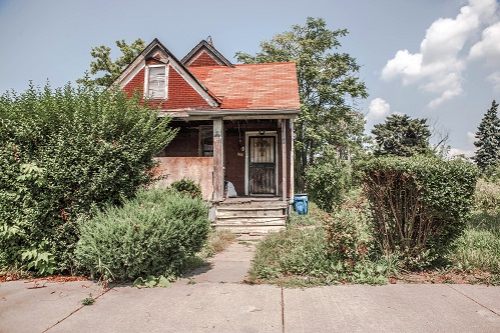- What is loss of use coverage on homeowners insurance?
- What does loss of use insurance cover?
- What is not covered by loss of use insurance?
- How much is loss of use coverage?
- How much loss of use coverage do I need?
- How to file a loss of use insurance claim
- How does loss of use coverage work with rental properties?
- How does loss of use reimbursement when staying with a friend or relative work?
- FAQ: Loss of use coverage
What is loss of use coverage on homeowners insurance?
Loss of use is a type of home insurance coverage that pays for expenses when you can't live in your home due to a covered loss. On your policy documents, it's listed as coverage D - loss of use or additional living expenses (ALE.)
"Loss of use coverage is typically included in a standard homeowners insurance policy. It's also sometimes called 'additional living expenses, (ALE) coverage,’" says Jack Dowd, account executive with The Dowd Agencies in Holyoke, Massachusetts.
If your home is uninhabitable due to a covered loss - such as fire - your insurance company will provide reasonable accommodations and cover these related expenses until you can move back into your house.
What does loss of use insurance cover?
Additional living expenses covers expenses above and beyond what you normally would pay for before your home was damaged. They include:
- Hotel or rental bills
- Necessary restaurant meals and food charges
- Transportation costs
- Fees to store your possessions
- Pet boarding
- Laundromat use
"This coverage pays you back for increased living expenses you incur. But the keyword here is 'increased.' For example, if you typically ate out every meal before the loss, and then you continue to dine at restaurants for every meal after the loss, these dining charges wouldn't be covered because you spent at the same rate you did before the loss," says Joshua Scott, a Scottsdale, Arizona-based executive general adjuster with The Greenspan Co./Adjusters International.
On the other hand, the additional cost of restaurant dining could be claimed if you rarely went to restaurants before the loss but were forced to do so while living in a hotel during repairs.
What is not covered by loss of use insurance?
Your policy will not cover expenses you were already responsible for before the loss, such as:
- Loan payments, including your mortgage
- Childcare bills
- Normal grocery bills
Also, loss of use coverage does not apply when flood damage is involved. If you have flood insurance through the National Flood Insurance Program (NFIP), you're also out of luck -- it won't cover additional living expenses. However, if you have private flood insurance, it is typically included.
Finally, loss of use doesn't cover anything that isn't related to a covered claim. For instance, if you go to a hotel because your heat isn’t working due to a power outage, you will not be covered. The coverage only applies when your house is being repaired due to a covered loss.
How much is loss of use coverage?
There is no additional cost for loss of use coverage. It's automatically included in your homeowners insurance as part of your annual premium.
This coverage is not broken out as a separate line item cost in your homeowners insurance policy or rate, so it's difficult to determine what percentage of your premium goes toward loss of use coverage.
"Typically, it accounts for 10% to 20% of your premium," says Kimesha Smith, attorney and director of client relations for Miami-headquartered Insurance Litigation Group.
How much loss of use coverage do I need?
How much additional living expense coverage you'll need will depend on many factors.
"In general, the standard loss of use coverage in a homeowners policy is tied to the total amount of dwelling coverage. I often see loss of use coverage in an amount equal to 20 to 30% of the total dwelling coverage," Dennis Sawan, a Toledo-based insurance litigation attorney, says.
Say your home is valued by your insurance company at $300,000. That means your insurer may automatically provide up to $90,000 in loss of use coverage (30% of your total dwelling coverage) for the year.
To calculate loss of use for home insurance, ask yourself: How long, if your home was destroyed, would it take to rebuild that property?
"Everyone's insurance needs are different. Consider whether the automatic amount is enough to cover any necessary increases in your living expenses if your residence was to become uninhabitable while the damage was being repaired," says Andy Jones, national property product supervisor for COUNTRY Financial in Bloomington, Illinois. "For instance, a one-person household will not need to rent as large of a home as an eight-person household if they were displaced due to a covered loss."
To be safe, your loss of use coverage should probably cover up to 12 months of basic, comparable living expenses.
Fortunately, you can request an increase in additional living expense coverage, which may slightly increase your premium. To best determine how much loss of use coverage you need and what it will cost to bump up this protection, contact your insurance company.
How to file a loss of use insurance claim
You don' need to file a separate home insurance claim for loss of use. It's included as part of the original claim you would make if your home is damaged or destroyed.
"Once a claim is determined to have resulted from a covered loss, your insurer will begin to make accommodations with you for loss of use payments, including working with you to determine an alternate living arrangement that can meet your satisfaction," Sawan says.
However, this checklist can help you get the most from your ALE coverage:
- Be prepared to complete a form breaking down your normal monthly living expenses
- Confirm with the insurance company what type of accommodations are permissible by your policy, such as hotels or vacation rentals
- Keep all receipts and record all of your extra expenses
- Submit receipts and invoices to your insurance company for reimbursement as soon as possible
"You should submit these receipts and invoices as they accrue so that you can be reimbursed over time as long as needed and up to 12 months," Smith says.
How does loss of use coverage work with rental properties?
If you are a landlord whose rental home is damaged and cannot be inhabited, landlord insurance covers the rent your tenant would otherwise pay.
"This coverage is also called 'fair rental value.' It covers landlords for lost rent while the residence is being repaired, with 10 percent of the dwelling coverage limit applied automatically," Jones says.
If you are a renter, you can file a claim for renters insurance loss of use coverage.
"When a tenant is insured under a renters policy, the policy covers expenses to both move the tenant to a new location and to cover the additional rents the tenant must pay at a temporary location," says Scott.
How does loss of use reimbursement when staying with a friend or relative work?
You can apply your loss of use coverage to costs associated with staying at the home of a friend or relative. You don't have to stay at a hotel or rent an apartment for loss of use coverage to apply.
This allows you to help pay the bills when you're staying at someone else's home.
"You are entitled to reimbursement regardless of your choice of temporary accommodations. If you choose to live with a friend or relative and pay them for lodging, food or other covered needs, your insurance policy will cover the expense as long as it is a reasonable charge," Jones says.
FAQ: Loss of use coverage
Does loss of use insurance have a deductible?
No, additional living expense coverage does not have a separate deductible. Your policy requires you to pay a deductible (often $500 to $1,000) for the underlying cause of loss that triggered the additional living expenses.
"If your home burns down, the deductible you pay will apply to the fire loss and not to the loss of use coverage," Jones says.
Is loss of use covered by homeowners insurance?
Yes. Loss of use is a standard part of a home insurance policy, but it has limits.
Is loss of use insurance the same as additional living expense insurance?
Yes. Loss of use coverage and additional living expense (ALE) coverage are two terms for the same coverage and are generally interchangeable.
Is loss of use the same as rent loss coverage?
No. They are similar coverages, but rent loss coverage only applies to a landlord's policy and pays for lost rent when tenants have to move out due to a covered loss.

 Loss of use coverage, also called additional living expenses (ALE) coverage, covers additional expenses you face when you can't live at home due to damage from a covered loss. It's part of a standard
Loss of use coverage, also called additional living expenses (ALE) coverage, covers additional expenses you face when you can't live at home due to damage from a covered loss. It's part of a standard 


